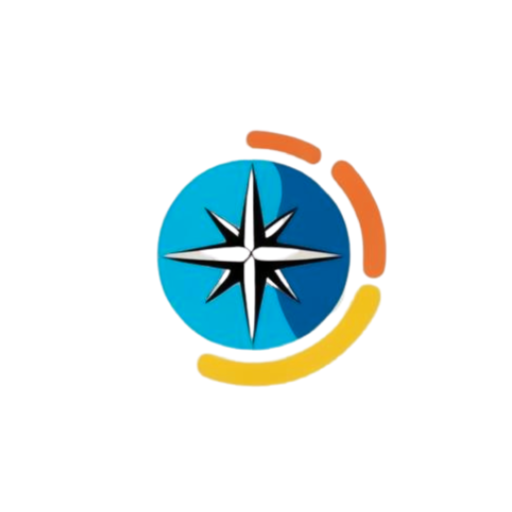Historical Timeline
1947 (August 14, Thursday): Pakistan is created as a separate state for Muslims after the Partition of British India
1948 (January 1, Thursday): First Kashmir War begins between India and Pakistan over the Kashmir region
1956 (March 23, Friday): Pakistan becomes a republic, adopting its first constitution
1971 (December 16, Thursday): Indo-Pakistani War of 1971: Bangladesh (formerly East Pakistan) gains independence, leading to the creation of Bangladesh
1977 (July 5, Tuesday): General Zia-ul-Haq seizes power through a military coup, ruling as a dictator until his death in 1988
1998 (May 28, Thursday): Nuclear Tests: Pakistan conducts nuclear tests in response to India’s tests, becoming a nuclear power
2005 (October 8, Saturday): 2005 Kashmir Earthquake: A devastating earthquake with a magnitude of 7.6, causing over 80,000 deaths and widespread destruction
2010 (July 29, Thursday): 2010 Pakistan Floods: Massive floods affect over 20 million people, causing hundreds of deaths and extensive damage
2012 (September 11, Tuesday): The assassination of former Punjab Governor Salmaan Taseer
2014 (December 16, Tuesday): Peshawar School Attack: Taliban militants attack a school, killing 145 people, mostly children
2020 (March 13, Friday): COVID-19 Pandemic: Pakistan announces its first confirmed case of COVID-19
2022 (August 25, Thursday): 2022 Pakistan Floods: Record monsoon rains cause widespread flooding across the country, affecting millions of people and causing severe economic damage
General Information
Continent: Asia
Location: South Asia, bordered by India to the east, Afghanistan and Iran to the west, China to the north, and the Arabian Sea to the south
Capital: Islamabad
Language: Urdu (official), English (widely used for official purposes), Punjabi, Pashto, Sindhi, and other regional languages
Currency: Pakistani Rupee (PKR)
Population: ~240 million (last updated: April 2025)
Time Zone: Pakistan Standard Time (PST, UTC+5)
Topography
Borders: India (east), Afghanistan (west), Iran (southwest), China (north), Arabian Sea (south)
Landscape: Mountainous in the north, vast plains and deserts in the south, coastal areas along the Arabian Sea
Major Rivers: Indus River, Jhelum River, Chenab River, Ravi River, Sutlej River
Major Mountains: K2 (highest point), Nanga Parbat, Gasherbrum, Rakaposhi, Broad Peak
Deserts: Thar Desert, Kharan Desert, Cholistan Desert
Lakes: Lake Manchar, Keenjhar Lake, Ratti Gali Lake
Volcanoes: No active volcanoes
Highest Point: K2 (8,611 m / 28,251 ft)
Lowest Point: Arabian Sea (sea level)
Climate: Arid in most of the country, with a desert climate in the south and subtropical climate in the north, characterized by hot summers and mild winters
Geological Features: The Indus Valley, the Himalayan mountain range, river plains, deserts, coastal areas
Demography
Ethnic Groups: Punjabis, Pashtuns, Sindhis, Baloch, Muhajirs (immigrants from India after Partition), and various smaller groups
Religion: Islam (approx. 96% Muslim: Sunni and Shia), Hinduism (approx. 2%), Christianity (approx. 1%), others (approx. 1%)
Urban Population: ~40% (last updated: 2023)
Aging Population: ~6% aged 65+ (last updated: 2024)
Culture
Famous For: Mughal architecture, poetry (Rumi, Allama Iqbal), Pakistan’s cricket team, rich historical heritage
Cuisine: Biryani, kebabs, haleem, naan, samosas, chai
Arts: Sufi music, Pakistani classical music, qawwali, Urdu poetry
Sports: Cricket, field hockey, squash, football (soccer)
Economy
Economy Type: Mixed, developing, heavily dependent on agriculture, manufacturing, and remittances
GDP: Approx. $350 billion USD (last updated: 2024)
Major Industries: Textiles, agriculture, cement, chemicals, oil and gas, construction
Key Exports: Textiles, rice, wheat, cotton, sports goods, chemicals, leather products
Unemployment Rate: ~5.5% (last updated: 2024)
Economic Regions: Agricultural heartlands in Punjab, industrial development in Sindh and Karachi, and natural resource extraction in Balochistan
Government
Government Type: Federal parliamentary republic
Head of State: President Dr. Arif Alvi (as of April 2025)
Head of Government: Prime Minister Shehbaz Sharif (as of April 2025)
Legislature: Bicameral (National Assembly & Senate)
Constitution: Constitution of Pakistan (enacted in 1973)
Travel Attractions
Islamabad: Faisal Mosque, Pakistan Monument, Rawal Lake
Lahore: Badshahi Mosque, Lahore Fort, Shalimar Gardens, Minar-e-Pakistan
Karachi: Mohatta Palace, Frere Hall, Clifton Beach
Skardu: Beautiful valleys and trekking in the Karakoram mountains
Swat Valley: Known as the “Switzerland of Pakistan,” famous for its natural beauty
Hunza Valley: Famous for its mountainous landscape and stunning lakes

